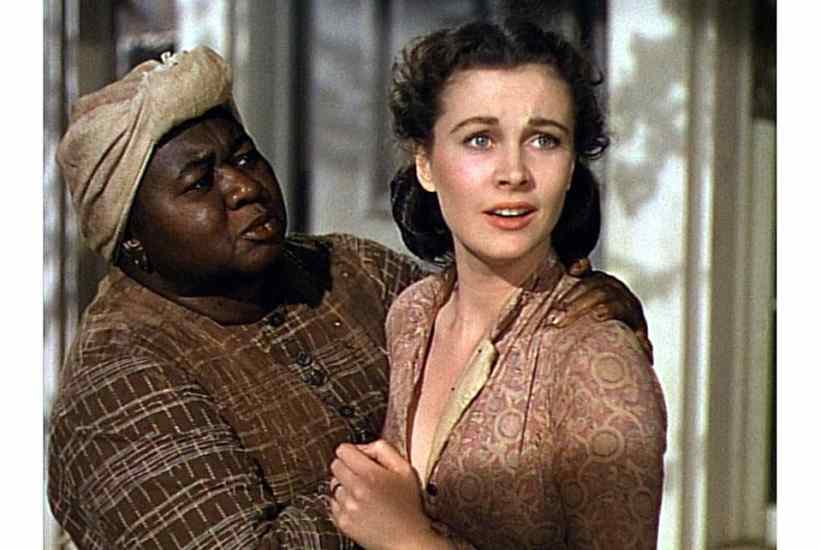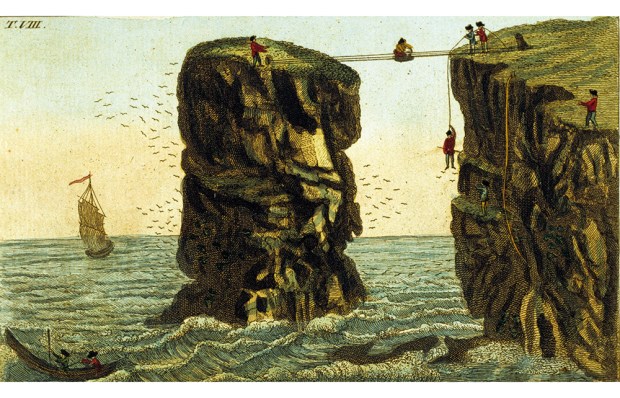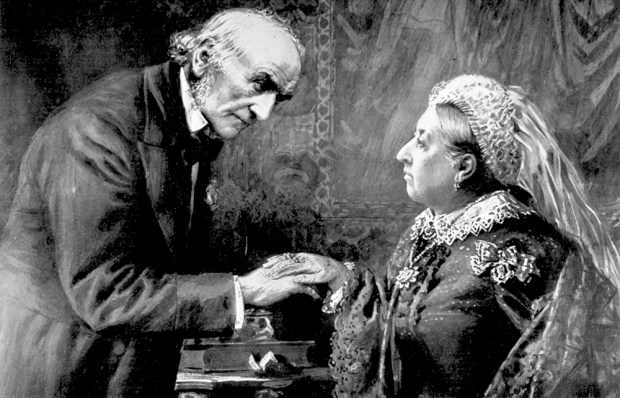‘America is merely a story the nation tells itself,’ the historian and cultural critic Sarah Churchwell writes in The Wrath to Come. Of the many American stories, few are more disturbing than the complex one represented by the rioter Kevin Seefried inside the Capitol on 6 January 2020. He carried the Confederate battle flag to a place it had never before been: the hall outside the United States Senate chamber. There is a photograph of him standing between two portraits – one of Charles Sumner, an abolitionist beaten half to death on the Senate floor for his views; the other of Senator John Calhoun, one of the South’s most ardent enslavers and advocates of disunion.
Seefried and his fellow insurrectionists were driven by dark American stories, among them the myths of replacement theory, the inherent superiority of white Christian men, and the Lost Cause. Strangely, the Lost Cause compels the devotion of millions of Americans – even northerners who have no historical allegiance to the ideologies that drove an enslaving southern elite to secede from the union, and their descendants to create an apartheid system governed by Jim Crow laws.
Perhaps the Lost Cause remains so prominent because of the powerful popular narratives that reflect and reinforce white American stances on race, privilege and history. In 1915, D.W. Griffith’s The Birth of a Nation drew enormous crowds and rapturous reviews. It was the first film to be screened in the White House (Woodrow Wilson is supposed to have called it ‘history written with lightning’) and it became a lightning-rod for racial violence among the communities where it played. It was also responsible for reviving the Ku Klux Klan.
Gone with the Wind followed, first as Margaret Mitchell’s runaway bestseller in 1936 and then, allowing for inflation, as the highest grossing Hollywood film of all time, in 1939. It has the advantage of being less obviously racist than The Birth of a Nation(although it’s one of the most racist and retrograde of all great movies), and so while Griffith’s civil war epic percolates largely unseen beneath the surface of American life, Mitchell’s story still retains its popularity.
As Churchwell argues, Gone with the Windis a seminal text that illuminates many American issues, including the use and abuse of history, white supremacy and even the rise of Donald J. Trump. She describes its heroine Scarlett O’Hara as ‘imperceptive’ and ‘deeply insensitive’, who learns nothing of value in the course of her life, refusing to see, grow or change. Hers is a profoundly American ignorance that is sometimes wrongly called innocence: precisely the kind of pigheaded blindness James Baldwin often condemned in white Americans who remain wilfully uninformed about their baleful history.
Churchwell also sees Scarlett as selfish, bewildered, bored by anything outside the realm of her own material comfort and thus a representative American: ‘Incurious and acquisitive, self-deceiving and vain, Scarlett shares the failings of both the Old South and modern America.’ But that isn’t all: her ‘wilful blindness gives voice to the denialism of American culture in its refusal to face facts, to recognise that what it tells itself simply isn’t true’. That characterisation of Scarlett may indeed reflect white America, desperately trying to reassure itself that it is right. It also seems an accurate depiction of Trump.
One of the most compelling elements of Churchwell’s book is its explanation of what many find baffling: the rise to ultimate power of a vain, venal, vapid real-estate developer, beauty pageant host and reality TV star. Despite those who hope Trump is an anomaly, Churchwell suggests his is an old, old story. He is a white man, born to privilege, who nonetheless insists he is persecuted: someone who discriminates with abandon in order to preserve his status. It is a sordid history. As Churchwell notes, 50 years ago, Donald and his father Fred were sued by Richard Nixon’s Department of Justice for racial discrimination, and Trump has since proved himself a reliable racist and nativist who sought to build a wall on the Mexican border, lamented that America didn’t receive all its immigrants from lily-white Scandinavian countries and castigated ‘shithole’ countries in Latin America and Africa as places where no self-respecting white man would want to go.
Today’s Trumpists are typically white Americans who prefer not to examine the racial basis of their privilege or the systems that maintain it; who fear and denigrate those who do not look like them and who lament the loss of what they think of as an ideal world – one which could still be recreated and made great again. The opening titles of the film Gone with the Wind say of that certainly imperfect world: ‘Look for it only in books, for it is no more than a dream remembered. A civilisation gone with the wind.’ Rather than correcting these false and dangerous remembrances, says Churchwell, Republican governors and state legislatures now argue that ‘it is “un-American” to teach the historical realities of racism in the United States – which in one sense is perfectly true’. Better a comforting myth than the regret and remorse that comes from confronting actual history.
Stylish and thoughtful, Churchwell’s book is an exemplary exploration of how Gone with the Windreflects, and continues to affect, American culture. If you wonder why Kevin Seefried from Delaware (a state loyal to the Union) carried the Confederate battle flag in 2020, The Wrath to Come suggests some answers – demonstrating that white America’s reluctance to face its history, and its unwillingness to relinquish its power and economic privilege, were foretold almost 100 years ago by Margaret Mitchell and MGM Pictures.
Got something to add? Join the discussion and comment below.
You might disagree with half of it, but you’ll enjoy reading all of it. Try your first month for free, then just $2 a week for the remainder of your first year.













